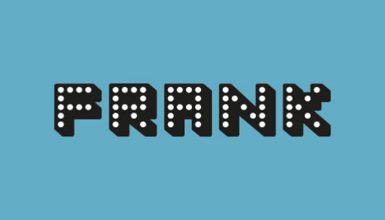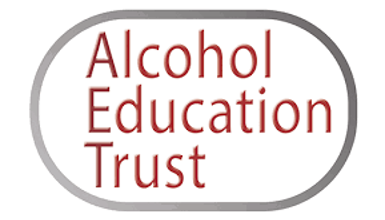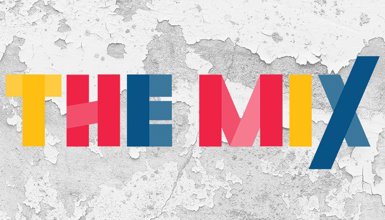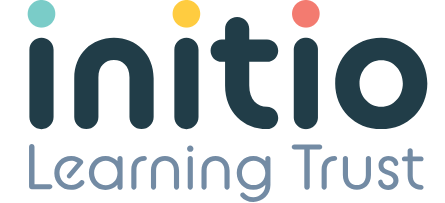Safeguarding
Safeguarding at QE
Queen Elizabeth's School is committed to safeguarding and promoting the welfare, both physical and emotional, of every pupil both inside and outside of the school premises. We implement a whole school preventative approach to managing safeguarding concerns, ensuring that the wellbeing of pupils is at the forefront of all action taken. We expect all staff, committee members, volunteers and visitors to share this commitment and maintain a vigilant and safe environment. It is our willingness to work in a safe manner and challenge inappropriate behaviour that underpins this commitment.
The Designated Safeguarding Leads can be contacted through the school office on 01202 885233 or email safeguarding@queenelizabeths.com marked for the attention of one of the safeguarding leads.
All members of our Safeguarding Team have had specialist training in Safeguarding and Child Protection. All staff at Queen Elizabeth's School are trained in safeguarding children, have regular safeguarding training and understand their role in protecting children.
Kelly Overhill is the Safeguarding Officer for Initio Learning Trust koverhill@initiolearning.org
The Lead Safeguarding Trustee for Initio Learning Trust is Patricia McKenzie.
If the school is closed seek support or make a referral by contacting:
Dorset 01202 228866 - MASH@dorsetcouncil.gov.uk
Bournemouth, Christchurch & Poole Council: 01202 735046
NSPCC helpline on 0808 800 5000
The Police on 101. If you believe a child is in immediate danger, call 999
Government Guidance
Student Report & Support
Students can complete the following form in confidence and a member of staff will be in touch:
Drugs & Alcohol
Young people need to make well-informed and safe choices around their decisions regarding alcohol and drug use.
It is important that they have a clear understanding of risks, not only to their physical health, but also to their mental wellbeing. Although rates of smoking and alcohol use by young people have declined in recent years, an NHS survey of young people aged 11 to 15 found that:
- 5% of students are smokers
- 22% of 15-year olds had been drunk in the last week
- 9% of students reported they had taken drugs in the last week
While some amount of experimentation with substances is normal for young people, excessive use can cause physical and mental health issues.
How do drugs and alcohol affect children and young people’s mental health?
Many young people will drink alcohol or take substances with no long-lasting effects. Young people may enjoy the feelings of confidence, energy or relaxation that drugs and alcohol can bring, or it may be part of trying a new experience and fitting in socially.
However, for some young people, drugs or alcohol can be a form of self-medication or coping mechanism. Young people may view substances as a means of managing difficult or painful feelings – for example, arising from early traumatic experiences, loneliness, family breakdown or difficulties engaging with school.
However, drugs and alcohol can make difficult feelings more painful, and can make existing mental health conditions worse. For example, as the effects of alcohol or drugs wear off, difficult feelings may feel more intense and painful. Drugs and alcohol could also interfere with existing prescribed medications.
Young people may experience peer pressure to engage in drug taking or drinking, to fit in as part of a social group. Substance use can affect young people’s judgment leading to risky behaviours, putting an already vulnerable young person in greater danger.
Addiction to substances is also a risk. If a young person becomes addicted to alcohol or drugs, their focus moves to feeding their habits, rather than engaging with learning or socialising.
Identifying the signs
While this is not an exhaustive list, there are some signs you can look out for that may indicate a problem with alcohol or drugs:
- Change in school performance
- Persistent lateness
- Mood swings
- Being absent from lessons or school
- Smelling of alcohol or cannabis
- Restlessness or tiredness
- Becoming more secretive, distancing themselves from friendship groups
- Reports of money disappearing from home or friends
- Lack of care in appearance
If you are at all concerned about a child or young person, you should always speak to the designated safeguarding lead as a matter of priority. They will be able to advise on suitable next steps, and speaking to them about any concerns should always be the first action you take, ahead of any of the suggestions on this page.
There are many other ways that the school can help children and young people navigate experiences with alcohol and drugs, including:
- The school has a clear school policy regarding the use of drugs and alcohol
- Ensuring there is high quality drug and alcohol education for all students from a young age, making use of specialists where available to talk confidently about local issues. through assemblies and our curriculum for Life Programme
- Providing high quality training for staff so that they are able to give informed advice and guidance
- We regularly liaise with the Police and other local agencies to look at local issues relating to drugs and alochol
- Staff can provide support and places of safety for vulnerable students, especially where there is drug or alcohol misuse in the family
- helping young people develop a sense of attachment to school and view it as a place of acceptance, so that they can voice their worries about their own personal choices, their friends and those in their family
Further support and information

Talk to Frank
Useful information for young people on all known drugs, offering support and guidance and a helpline on 0300 1236600 or via text on 82111.

Alcohol Education Trust
Support and guidance for schools and parents.

The Mix
Expert advice and true stories about alcohol and drugs for KS3, 4 and 5.
Find out more
Drink Aware
Provide support, information and advice about the impact of alcohol on you, your family or friends.
Free webchat service available (hours vary).
Opening times:
9am - 8pm, Monday - Friday; 11am - 4pm, weekends
Concerned about a child or young person?
If you are worried that a child or young person is at risk, involve your designated safeguarding lead as a matter of priority who will contact the parents/carers and other services as necessary. If the child or young person is at immediate risk, ensure that they are taken to their GP or A&E as a matter of urgency, depending on the severity of the concern.
Operation Encompass
Operation Encompass is a police and education early information sharing partnership enabling schools to offer immediate support for children and young people experiencing domestic abuse. Information is shared by the police with a school's trained Key Adult (DSL) prior to the start of the next school day after officers have attended a domestic abuse incident thus enabling appropriate support to be given, dependent upon the needs and wishes of the child.
Children experiencing domestic abuse are negatively impacted by this exposure; domestic abuse has been identified as an Adverse Childhood Experience and can lead to emotional, physical and psychological harm. Operation Encompass aims to mitigate this harm by enabling immediate support, making a child's day better and giving them a better tomorrow.
Operation Encompass directly connects the police with schools to secure better outcomes for children who are subject or witness to police-attended incidents of domestic abuse. Rapid provision of support within the school environment means children are better safeguarded against the short, medium and long-term effects of domestic abuse.
For more information about Domestic Violence and support please visit:
Dorset - Domestic Abuse Dorset County Council
Bournemouth Christchurch and Poole (BCP) - Domestic Abuse BCP
Self Harm Support
Why do teenagers and children self-harm?
The reasons children and teenagers can self-harm are often complicated and will be different for every child or young person. Sometimes a child or teenager may not know the reasons they self-harm.
For many young people, self-harm can feel like a way to cope with difficult feelings or to release tension. The physical pain of hurting themselves can feel like a distraction from the emotional pain they're struggling with.
Some difficult experiences or emotions can make self-harm more likely in children:
- experiencing depression, anxiety or eating problems
- having low self-esteem or feeling like they’re not good enough
- being bullied or feeling alone
- experiencing emotional, physical or sexual abuse, or neglect
- grieving or having problems with family relationships
- feeling angry, numb or like they don't have control over their lives.
Signs of self-harm in children and teenagers
It can be hard to recognise the signs of self-harm in children and teenagers, but as a parent it’s important to trust your instincts if you’re worried something’s wrong.
Signs to look out for can include:
-
- covering up, for example by wearing long sleeves a lot of the time, especially in summer
- unexplained bruises, cuts, burns or bite-marks on their body
- blood stains on clothing, or finding tissues with blood in their room
- becoming withdrawn and spending a lot of time alone in their room
- avoiding friends and family and being at home
- feeling down, low self-esteem or blaming themselves for things
- outbursts of anger, or risky behaviour like drinking or taking drugs.
The sites listed below offer specialist advice in relation to self harming.
Young Minds www.youngminds.org.uk
Kooth Online Support http://www.kooth.com/
Place2Be https://www.place2be.org.uk/
SHOUT https://giveusashout.org/
Samaritans 08457 90 90 90
Child Line www.childline.org.uk
National Self-Harm network www.nshn.co.uk
Other sources of advice and support:
https://www.every-life-matters.orh.uk/self-harm/
https://charliewaller.org/

